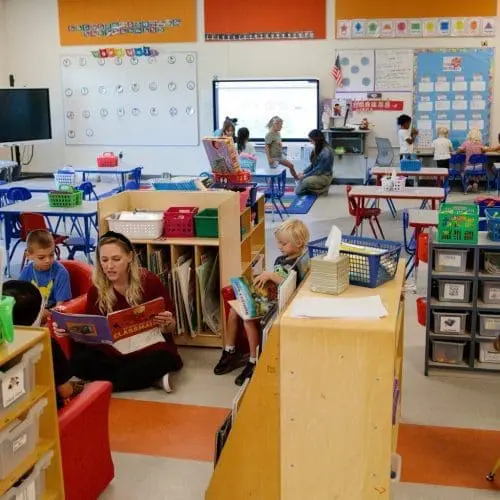by Kim Komando
Komando.com
 You’ve got a GPS tracker! And you’ve got a tracker! And you! From Apple AirTags to Tiles to Jiobit sensors, GPS trackers are everywhere. I put them in my cars, wallet, laptop bag and on my keys. And police are even putting them on people’s cars now, too.
You’ve got a GPS tracker! And you’ve got a tracker! And you! From Apple AirTags to Tiles to Jiobit sensors, GPS trackers are everywhere. I put them in my cars, wallet, laptop bag and on my keys. And police are even putting them on people’s cars now, too.
It’s really no surprise parents are using GPS watches and tags to monitor kids when they’re away. If your tyke is off to a new school, you, too, may be wondering if it’s time for a tracker.
Checking an app and finding your kid’s location when you’re worried sounds amazing. Some brands like AngelSense (great name, I know) even target parents.
But is it legal? Do schools get a say in tracking your kids? Let’s ring the recess bell, because I’ve got some schooling to do.
First, the legalese
Parents are generally allowed to use GPS trackers with their young ones. As long as your kids are under 18 and no other legal restrictions get in the way, you can send them off with a tracker. Just make sure the battery is fully charged!
Also, and this is critical: Avoid breaking any privacy or HIPAA laws. Don’t use devices to listen to conversations or record what people say. As my first-grade teacher would’ve said, “That’s a no‑no.”
Some schools even enable tracking, but every school is different. Of course, tracking is more common for preschool-aged kids who may be prone to wandering, which is why certain Montessori-style schools are adopting it.
Other schools are embracing tracking programs via microchips on student IDs that can, for instance, tell when a student’s hopped on a particular bus. But that raises another huge question: Do schools also have the right to track your kids?
Not your grandma’s hall pass
Your rights as a parent extend to tracking your kids at school, but schools can also set their own tracking policies. The bus tracking I mentioned above is only one example, and it’s being implemented in schools from Kentucky to New York — although the New York program got off to a very rocky start.
Other school districts, like one in Orange County, are trying mandatory tracking for teen students after four or more unexcused absences. Texas is big on tracking, too; Austin and San Antonio are just a couple of districts with tracking programs for tardy students. Meanwhile, digital hall passes that track bathroom visits have become incredibly common from coast to coast.
By the time kids are ready for college, they can expect a variety of campus-required surveillance. Spooky? You bet! But here’s the interesting thing: The opposite is also happening.
Tracking pushback is growing
With the rise of tracking, more schools are pushing policies to reinforce student privacy and ban some types of tracking. That can include parent-based trackers in backpacks and certain kinds of watches. (Germany is taking it to the next level with a nationwide ban.)
It’s not only about preserving student privacy. Schools don’t want classes to fall apart because of panic buttons, alerts or, God forbid, two-way voice calls from parents. Administrators don’t want to field dozens of calls from parents because their sweet baby took a right instead of a left last Tuesday.
That equals a growing number of policies that treat GPS devices like smartphones. They’re not allowed in the classroom, teachers may gather them up before lessons, and, if problems arise, they could be banned entirely.
So, what about your school’s specific policies? Look, I’m good, but I’m not that good. You need to give them a call. See if their website has any details on GPS trackers, and ask about their policies for using them. Most schools have made a decision about them by now.
And if you’re going to track your little angels, know the dangers and make the comparisons before you buy.





